Cary Stamp, CFP® in Jupiter, FL describes the considerable tax and administrative benefits of using a Donor Advised Fund for charitable giving. Mr. Stamp is a Forbes Best-In-State wealth advisor.
VIDEO TRANSCRIPT:
I’m Certified Financial Planner, Cary Stamp. I’m also a Chartered Advisor in Philanthropy, and over the last three years, we’ve helped our clients’ families give away almost $2 million to charities of their choice. One of the main ways that we’re doing this is by using a strategy called the Donor Advised Fund, what we call in the industry a DAF.
A Donor Advised Fund is something that you set up for yourself or your family so that you can control where your charitable contributions are going and when they are going there. So a Donor Advised Fund allows you to take a charitable contribution that you make, itemize it on your tax return, take a tax deduction for the contribution that you’re going to be making. That tax deduction can include things like donating appreciated assets.
So let’s say that you’ve owned a stock for 10, 15 or 20 years, like Microsoft or Facebook or Apple or something like that, and you’ve got a very low basis and a very high capital gain. You can give that away. You can give away the capital gain that you own in that security. If you want, you can buy it right back, give away the capital gain, take the tax deduction, it’s going to a charity which is your own Donor Advised Fund, and when a charity sells an asset, they never pay any taxes. But you can get 100 cents on the dollar for the tax deduction if you use an appreciated security.
You can name your fund, you can call it whatever you want. You can call it the Stamp Family Foundation if you like, you could call it the Save the Children Fund or Save the World Fund or Save the Whales Fund… any name that you would like, you can put on your Donor Advised Fund. And the types of assets that the fund can take, depending upon who is holding or hosting your DAF, can be fairly extensive. They can be stocks, they could be bonds, they could be real estate. They might even be other types of intangible assets if you can agree on a valuation for what those contributions are worth.
Now there’s a few things you need to keep in mind. Here are some of the things that if you enter into a Donor Advised Fund, you need to remember. It is an irrevocable gift. You give the money away. It’s your own charity, but you give it away and you can’t get it back. There can’t be an exchange of value for anything that you do with your Donor Advised Fund. So if you go to a lot of galas or cocktail parties or golf tournaments for charity, you can’t use your Donor Advised Fund to make those contributions because you receive something in return, there’s an exchange of value. It has to be purely a contribution to an organization.
And lastly, this usually doesn’t work very well with smaller dollar amount of contributions. We typically tell our clients to try to keep the contributions that they’re making from their Donor Advised Fund to at least $250 per organization that they’re contributing to. So typically, if you’re setting up a Donor Advised Fund, you’re doing so with anywhere between $20,000 on up. You’re not doing this for small amounts of funds because it does not give you the benefit of the itemized deductions and what we call bunching of deductions over a number of different years.
So the Donor Advised Fund is a great tax saving strategy if you know you’re going to be making charitable contributions for years into the future. I’m Cary Stamp. I’m a Chartered Advisor in Philanthropy, and this has been a Principled Wealth Moment.



